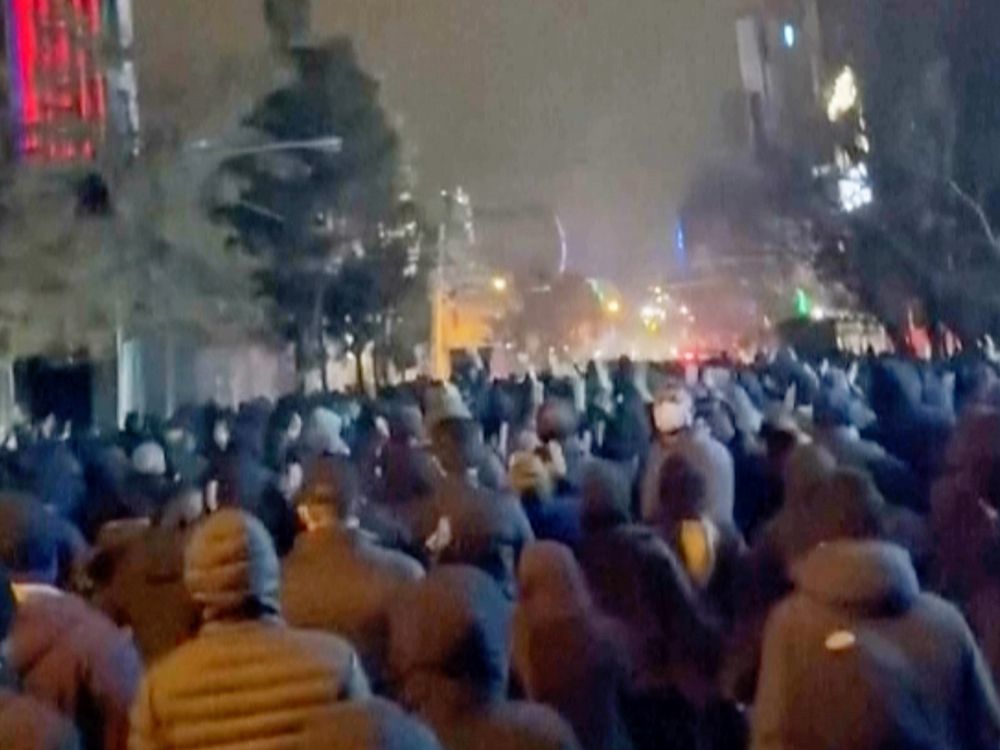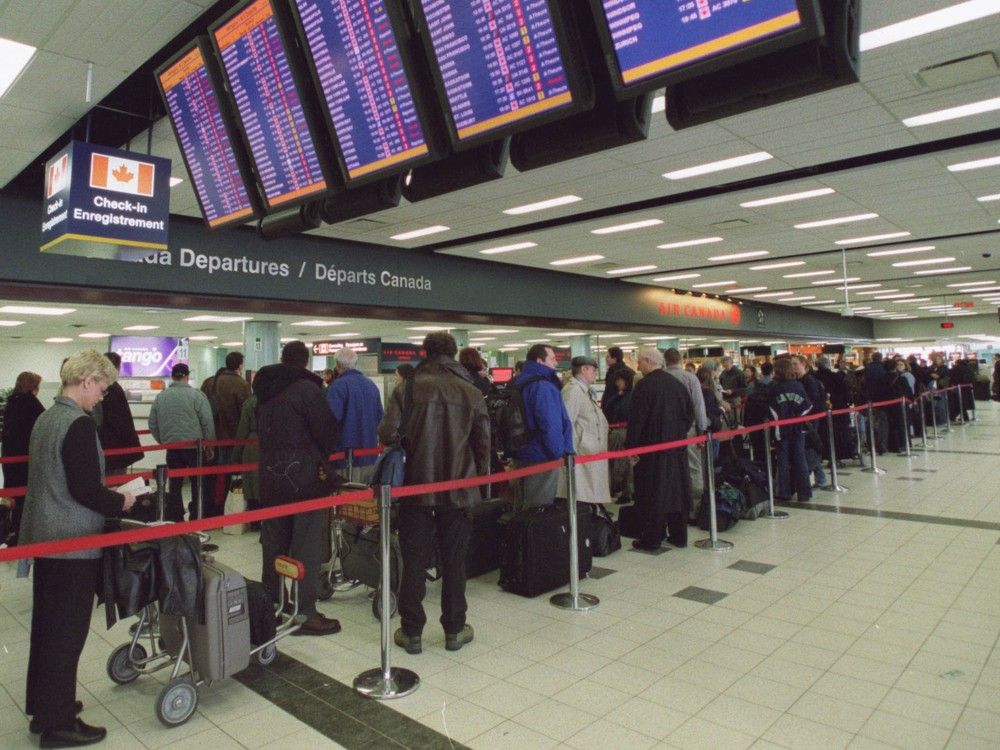
OTTAWA — While Parliament Hill swirls with speculation about potential floor-crossings, one Conservative MP is raising his hand, but for a different reason: To assist Prime Minister Mark Carney’s government navigate the Canada-U.S. relationship.
“I think everyone knows where I stand,” Jamil Jivani smiles and says, seated in his Parliament Hill office on Friday morning.
He proudly adds: “I am decidedly non-liberal.”
Despite political differences, Jivani is extending his hand to Carney and key cabinet ministers involved in the Canada-U.S. portfolio to offer his help, as Canada has yet to secure a deal that would see tariffs removed, if not lowered, and as the countries enter a critical review of the trilateral trade agreement with Mexico.
Jivani has made his intentions known, including through private emails to Carney and other key cabinet ministers involved in the Canada-U.S. file, such as Intergovernmental Affairs Minister Dominic LeBlanc and Natural Resources and Energy Minister Tim Hodgson.
So far, nothing has been returned.
The 38-year-old is staying positive about the lack of response, which he concedes may be overly optimistic. “I hope they’re considering it.”
It is not just that the MP, who has earned a reputation for being unafraid to share his opinions, is eager to help.
He enjoys a unique relationship with U.S. Vice-President JD Vance, whom he met while attending Yale Law School.
“There are just not very many people who are in a situation where I think they can have a direct line to the White House,” Jivani says.
“I do think I can at least get my phone calls answered, and I think that counts for something.”
Jivani characterizes his friendship with Vance as being that of old, but good friends, a bond built during formative college years. The type where Jivani describes, that should his cancer come back, a battle which he has been public about before being elected to federal politics back in 2024, Vance would pick up the phone, not only to call him, but also his mother.
Their families know each other, too, he said. As for their recent communications, Jivani says that over the past several months, they have not interacted outside of being in the same fantasy football league.
Jivani’s identity as a sports fan is evident in his office. Photos of Muhammad Ali, Michael Jordan and Tom Brady, the giants of boxing, basketball and football, respectively, dot one wall. On the opposite side stands an arcade-style basketball net in the corner.
Asked who is better at fantasy football, Jivani says he has had more success.
“I think it’d be fair for me to say I’ve been better. But he might disagree.”
Disagreement could also be the term that has defined the pair’s relationship, at least when it comes to the political posturing of both their countries, with the Trump administration upending global trade through tariffs, which Canada has tried to buck, arguing that free trade has worked historically and would continue to do so in the future.
Then there were Trump’s comments about coveting Canada as his “51st state,” which set off a wave of anger.
Jivani, who represents the riding of Bowmanville—Oshawa North
, home to many autoworkers feeling the brunt of tariff anxiety and announcements of layoff notices from companies responding to Trump’s moves, says he spent the past year feeling a “tremendous amount of pressure” to distance himself from Vance and answer for the never-ending turn of developments coming from the Trump administration.
The MP admits that the intersection of friendship and work “does make it complicated.”
“It’s very weird when the guy you play fantasy football with and the guy used to drink beers with in law school becomes a vice president,” says Jivani. “Like, it’s a weird experience.”
Despite the pressure, Jivani rejects any notion that he needs to disavow or “attack” his friend. Instead, he has embraced the attitude that you can be friends with someone you disagree with.
Not only does he have a personal connection to Vance, Jivani says that his U.S. network includes former classmates who have worked for other presidents and have cross-border business dealings.
“I do believe that if I took a flight down to Washington right now and said, I want to have a conversation with you (Vance) about how we can get things going between the Carney administration, the Trump administration, I think he hears me out,” Jivani says.
“I don’t know what he does with that. I don’t know all the things they have to deal with down there, but that friendship is a real friendship.”
Simply put, Jivani, who says he has proven himself as a “hustler,” has a simple pitch to the government: “Let me show what I can do.”
Others expressed skepticism about the practicalities of Jivani’s offer.
Sen. Peter Boehm, a former diplomat, questioned what the purpose would be in seeing another communication channel opened, given the prime minister’s direct line to Trump and the fact that LeBlanc speaks to Commerce Secretary Howard Lutnick, not to mention the role played by Canada’s ambassador to the U.S, with businessman Mark Wiseman named to the post.
Then come questions about how things could work given the structure of government, which raises concerns about the sharing of co
nfidential
information and negotiating positions.
“In order to take on some sort of a role, Mr. Jivani would have to be in the tent,” he said.
Diamond Isinger, who served as a special advisor to former prime minister Justin Trudeau on Canada-U.S. relations, said “Canadians made very clear in this last election” that they believe the Liberals were the best party to deal with Trump.
She also questioned what Jivani could add to the situation, when Canada has consulate staff across the U.S. and those in the embassy who are individuals that have forged “multi-decade relationships with key Americans.”
“Once in a while, a Canadian, whether an MP, business leader or a former prime minister has an established relationship with a foreign senior official. Such fortuitous friendly pre-established relations can be helpful contextually and foster mutual understanding,” said Louise Blaise, a former diplomat in the U.S.
“At the same time, official lines of communication on government business, must be kept as clear and streamlined as possible.”
Jivani describes his decision to offer his help as an evolution, saying that after his party’s election loss last year’s election he decided to stay quiet to provide Carney “space,” and did not feel it was his place to “speak for Canada.”
He began thinking differently after last fall when he observed that the progress Canada had been making towards a deal with the U.S. stalled after Trump’s uproar over a series of anti-tariff ads ran Ontario Premier Doug Ford.
Jivani, once an appointee of the Ford government, has been an outspoken critic of the premier’s.
He suggested the derailing of talks showed “we don’t have the right interlocutors.”
Another concerning development Jivani sees is Canada’s reorientation towards China, as it looks to diversify away from the U.S.
Carney has defended Canada’s position as finding itself in the best spot among other U.S. trading allies, given goods covered by the Canada-U.S-Mexico trade agreement exempt, covering the majority of products.
He also said talks about outstanding U.S. tariffs on sectors like steel and alumnium would roll into discussions around renewing that agreement.
Jivani compares what he is proposing to be similar to the efforts being made by Canadian business leaders and as well as the approach Trudeau took under the first Trump administration, when Conservatives Rona Ambrose and James Moore, served on a council struck to assist the government as it renegogiated the former North American Free Trade Agreement.
Goldy Hyder, president of the Business Council of Canada, points to how Trudeau looked to former prime minister Brian Mulroney who used his U.S. contacts to assist the Trudeau government in those years.
Hyder, who says he does not know Jivani but credits him for making outreach to the government as opposed to just “freelancing,” suggests that whether it is through him or others in the business community, the chance to gain more insights and better access should be seen as opportunities.
“The closer we are together, the closer we work together, the more likely that we’re going to have success to help bringing about the conclusion we all seek,” he said.
Several premiers’ offices were contacted for comment. Only one responded.
“I remain convinced that the path to a positive resolution with our U.S. partners lies in strong, consistent diplomacy and a commitment to working in good faith toward shared priorities, rather than angry rhetoric and retaliation,” Alberta Premier Danielle Smith, said in a statement.
“We must continue to build new relationships and leverage existing ones, which could include MP Jamil Jivani’s relationship with U.S. Vice President JD Vance, to advance Canadian interests and restore free and fair trade with the United States.”
Jivani is scheduled to host Smith later this month when she appears alongside him at one of his “Restore the North” campus tours in Alberta.
With plans to attend next month’s National Prayer Breakfast in Washington, an event where Jivani said he can encourage dialogue and hopes to hear back from the government before that.
As for what Opposition Conservative Leader Pierre Poilievre thinks about its overtures, the MP said Poilievre has also offered to help.
Jivani hopes that he would be tapped to do the same should his party one day form government.
“I would hope that, you know, if we had won the election and he were prime minister, and you know, maybe one day he will be, that he will be asking me to help too, right?”
National Post
Our website is the place for the latest breaking news, exclusive scoops, longreads and provocative commentary. Please bookmark nationalpost.com and sign up for our newsletters here.


















